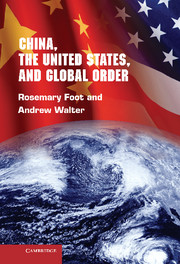6 - Financial Regulation
Published online by Cambridge University Press: 05 June 2012
Summary
The dilemmas posed by the emergence of cross-border capital flows and global financial firms since the 1960s are emblematic of the difficulties posed in a hybrid global order that had been predicated on national financial regulation and supervision. Financial globalization has been associated with periodic crises of growing frequency and with important cross-border dimensions, prompting efforts to coordinate regulatory approaches. The major developed countries dominated these efforts. They possessed the largest and deepest financial systems and were also the primary beneficiaries of financial integration. The G7 countries were the most important participants, though the slightly larger G10 grouping that established the Basel Committee on Banking Supervision (BCBS) in 1974 was the primary forum for coordination efforts. Along with many other public and private international bodies, the BCBS elaborated a growing body of voluntary international standards concerning supposed best practice principles for financial regulation and supervision. Although this international standard-setting process has for some time been fairly technocratic and hidden from public view, it has become increasingly central to global economic governance. After the global financial crisis of 2008, it rose to the very top of the global economic governance reform agenda.
In this chapter, we focus on banking regulation as an area of signal importance in global financial regulatory cooperation both before and after the 2008 financial crisis. The United States, by some distance the most important country that participated in these international coordination efforts, has been especially influential over the shaping of the normative framework and the principles and standards associated with it. China, by contrast, was excluded until very recently from the BCBS and most other international standard-setting bodies in financial regulation. Thus, its historic position has been that of a rule taker, in sharp contrast to that of the United States.
- Type
- Chapter
- Information
- China, the United States, and Global Order , pp. 229 - 273Publisher: Cambridge University PressPrint publication year: 2010



